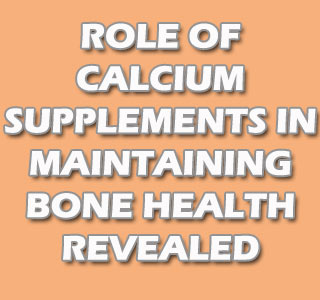
It has been claimed that the analysis has the ability to encompass 300 scientific studies examining calcium supplementation’s effect on bones. But only 15 randomized clinical trials were included in the study. Moreover, from a total of 15 trials, seven seemingly had either no, or incomplete data on cardiovascular outcomes. The remaining five had supposedly comprehended around all the cardiovascular consequences.
“Adequate calcium intake is vital to building and maintaining healthy bones, and to preventing osteoporosis—which is caused by a failure to build adequate bone mass or by bone loss that occurs as we age. Most people do not get enough calcium from diet alone, and this is where a calcium supplement can be important to consumers of all ages. The results from this meta-analysis do not undermine the value calcium supplements offer to those concerned with maintaining or increasing bone density, as years of research shows these products do,” remarkedAndrew Shao, Ph.D., senior vice president, scientific and regulatory affairs, Council for Responsible Nutrition.
In the study, investigators avoided trials employing calcium and vitamin D. It has been revealed that the meta-analysis was triggered with the intention to track down cardiovascular outcomes. All data utilized was apparently not published, therefore in some instances meta-analysts had to track the information down separately. It was noted that the information was gathered 10 or 20 years after the original study was published.
Dr. Shao explained, “The authors characterize these findings as though all of the selected studies suggest increased risk. In fact, the opposite is true: most of the studies do not suggest increased risk. Bone health is one of the most common reasons why healthcare professionals recommend calcium supplements; there are other health benefits that may be associated with calcium supplementation, such as reduction of colon cancer risk. This is not even considered by the authors. It’s unfortunate that these investigators are making sweeping judgments about the value of calcium supplements by only assessing a handful of handpicked studies.”
The meta-analysis is affirmed to be dependant on prior investigations and hence may remain limited and contain different designs, doses and study populations. It was cautioned than the findings do not encourage halting the intake of calcium supplements. The scientists suggest to gain consultation from their doctors and understand the need of calcium in their diet.
The findings were published online in the British Medical Journal.
